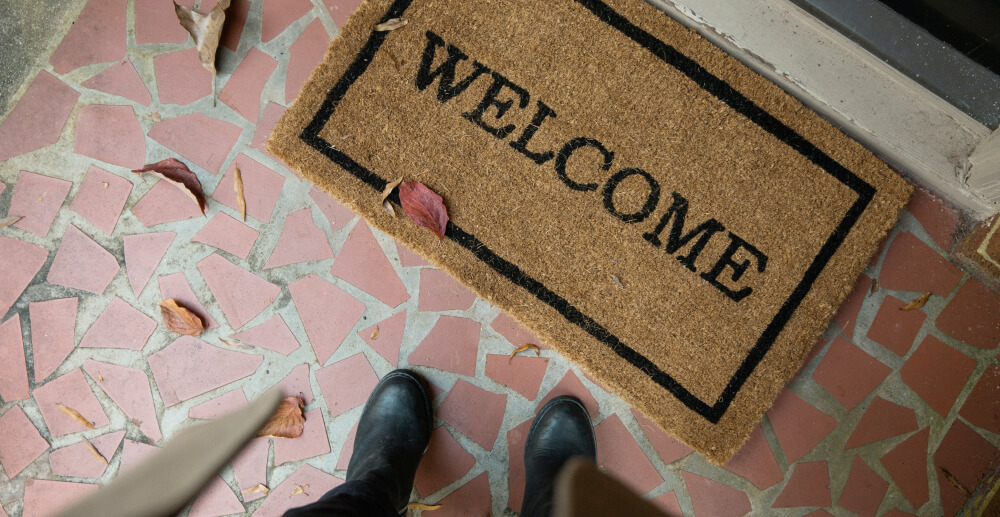It’s official: the demon also known as the year 2020 is finally over! It really seemed that, during 2020, if it could go wrong it did go wrong.
With COVID-19 vaccines in play and a new U.S. administration on the way, there’s a lot to celebrate. And we should definitely take a moment to revel in the wins that are being ushered in with the new year!
But we also can’t pretend that a new Gregorian calendar year, the change in administrations or even the foreseeable end of the pandemic will magically fix all of the issues that came to light, arose, or were exacerbated during 2020. One of those issues is domestic violence. Of course, domestic violence is not an issue unique to 2020—but, unfortunately, many of the issues that helped make the year so remarkably terrible also exacerbated many of the conditions that can lead to violence within the home or make it more difficult for those experiencing domestic violence to getaway.
Domestic violence can take place in a variety of relationship contexts and can be perpetrated by people of any gender against people of any gender. This blog post is mostly focused on intimate partner violence, but the general messaging can be applied toward other forms of domestic violence. Current data indicates that intimate partner violence is committed most commonly by male perpetrators against female targets, although that data may be skewed by collection and reporting biases. For the purposes of clarity, I will be utilizing gender pronouns that reflect this dynamic, but please keep in mind that many violent relationships do not match the statistical “norm.” If you are experiencing intimate partner violence and you are male, gender-queer, in a same-sex relationship, or otherwise do not match the male/female dynamic, this post is still for you. Your experience is valid.
The Effects of Isolation on Domestic Violence
One of those issues were the periods of quarantine and isolation necessitated by the pandemic. Coupled with widespread job losses and exacerbated economic insecurity, these periods of isolation—while necessary to help prevent the spread of the virus—left people experiencing intimate partner violence or other forms of domestic violence even more isolated and vulnerable than they were already.
One of the early warning signs of intimate partner violence is isolation. Often, abusers will cut their targets off from their family, friends, and support networks. This can happen in obvious ways, like an abusive partner demanding his target stop spending with male friends or limit conversations with family members. It can also be more subtle, such as comments denigrating important relationships, or that make her feel unsafe after spending time with other people. This behavior can become so intense that the target may stop communicating with friends and family when their abuser is around, or end communications altogether.
The social isolation necessitated by the pandemic can make it harder for people in abusive relationships to speak with friends and family, or to reach out for help. If you know or suspect that someone you love is experiencing domestic violence during the pandemic but you’re not hearing from them, reach out yourself. Keep in mind that it’s not uncommon for abusers to have total control over their target’s phones and social media accounts, so make sure any messages you leave could be safely heard by their abuser.
How the Pandemic Has Exacerbated Economic Abuse
Although often not considered in such terms, intimate partner violence is an issue of economic justice as much as it is social justice or feminist issue; people involved in abusive relationships are known to miss more days of work than the average employee, lose their jobs more often, and remain chronically unemployed as the result of their abuse. When they do earn income, it is common for an abuser to take control of their finances, granting them sparse or no allowances. This is called economic abuse, and some estimates place it as present in 98% of abusive relationships.
Economic abuse can make it difficult and dangerous for targets of abuse to pull together the funds necessary to safely escape an abusive household. Of course, the coronavirus pandemic has made this problem even more dire. It’s no secret that tons of U.S. households have experienced enormous—and even total—slashes to their income due to pandemic related hour cuts and job loss. In addition, group environments like homeless shelters or even specialized DV shelters have had to cut capacity or, in some cases, close down altogether in order to adhere to local regulations aimed at controlling the viral spread. Even where these options remain available, it is not easy to choose between the danger of intimate partner violence—but the relative safety of a home environment—versus the danger of moving into a group setting filled with strangers during a deadly pandemic.
For some, selling homemade goods and work-from-home services or hosting online fundraisers may be their only means of generating the funds to get to a safer situation—even if they don’t explicitly state that. Some people have a huge stigma against giving cash to others, even if they are able to afford it. That stigma is amplified when the person in question is currently using drugs or has a known history of use. How you share your money is your own choice, and nobody has the right to demand you use it in any particular way—but I would like to urge you to consider the extenuating circumstances posed by the pandemic, and the fact that many formal emergency charity services are unable to reach the most vulnerable among us. Asking for money is never easy; if you see someone doing it, they are more likely to be in desperate need than lazy or unproductive.
People Use Drugs to Cope
The fact that people use drugs to cope is nothing new, nor is the fact that there is a high correlation between experiencing intimate partner violence and engaging in both substance use and problematic substance use. Problematic drug use also appears to have gone up during 2020; although final national data are not yet in, jurisdictions around the United States have recorded worrisome spikes in fatal overdoses, as well as increased self-reports of substance use, including alcohol. Although we do not have official confirmation that domestic violence has played a role in the uptick we’re seeing, that doesn’t mean there’s no correlation.
It’s generally a good rule of thumb not to judge someone who is using drugs in a manner you perceive as destructive: besides the reality that they may view their use through a radically different lens, the choice to use a substance is dynamic and ever-evolving based on the equally dynamic circumstances of their personal life. Add the dual trauma of a pandemic and a violent relationship into the mix, and you have an equation that, for some, may result in substance use.
If you’re concerned about their use, try sharing your concerns in a compassionate, non-judgmental manner, and making sure (to the best of your abilities) that they are consuming drugs in a safe manner that mitigates the risk of fatal overdose and disease. An earlier blog post I wrote for WorkIt Health last year discusses some harm reduction tips. You can also look to orgs like the Harm Reduction Coalition, Urban Survivor’s Union, the People’s Harm Reduction Alliance, and more for more tips and information on harm reduction.









